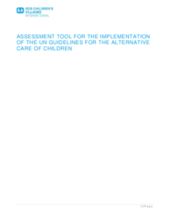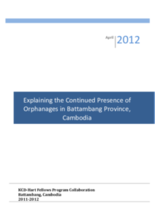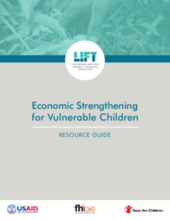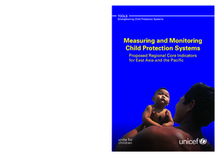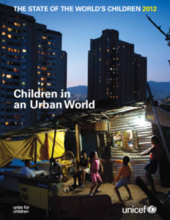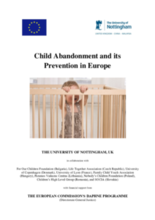Displaying 391 - 400 of 565
This paper presents findings from the first-ever study of kinship care in the UK using census micro data.
On May 2, 2012, in preparation of the Family Strengthening and Alternative Care Conference for Francophone Sub-Saharan Africa in Dakar, Senegal, BCN and the regional planning committee convened experts and practitioners to present and discuss the efforts to implement the Guidelines for the Alternative Care in the region. Watch this video for presentations, country level experience from Togo, and discussions on the pressing issues facing implementation in the region.
SOS Children's Villages has produced an assessment tool for the implementation of the UN Guidelines for the Alternative Care of Children. It has been designed to support the advocacy activities of SOS Children's Villages. The tool’s main focus is to measure a state’s obligations under the UNCRC, in providing quality care arrangements for all children who have lost parental care and those families at risk of separation
This qualitative research study seeks to better understand some of the reasons for residential care expansion in the province of Battambang, Cambodia. The study aims to identify why children are sent to orphanages and understand the attitudes of those stakeholders who are influencing the rise in institutions in the province.
The National Family Preservation Network (NFPN) recently released its family assessment tool designed for use in Least Developed Countries (LDC). The tool aims to help a variety of workers serving families in least developed countries by providing methods and approaches to enhance family strengthening.
This is a resource guide designed for PEPFAR implementing partners to help them effectively design and implement economic strengthening activities for vulnerable children. The guide lists gender, age, social inclusion, conflict, accessibility, chronic illness, and environment as reasons that certain children and households are vulnerable.
This publication proposes a framework of core indicators for measuring and monitoring national child protection systems in the East Asia and Pacific region.
This report provides data on children living in urban settings, including statistics, conditions, and personal testimonies. The report also includes UNICEF’s recommendations for policy regarding children in urban settings, working with this population, and for future action. Sections that are relevant to children’s care include: children living and working on the streets, migrant children, urban emergencies, and many more.
This comprehensive manual provides an overview of child abandonment and its prevention in Europe, exploring the extent of child abandonment, possible reasons behind this phenomenon, the consequences of abandonment, and good practices in terms of prevention. For the purposes of the EU Daphne-funded project, child abandonment is defined in two ways, namely open and secret abandonment. Country specific in-depth reviews of child abandonment and its prevention are provided for 10 countries and results from an EU-wide survey analyzed.
This report, produced by the Joint United Nations Programme on HIV/AIDS provides an update on the global AIDS epidemic as well as information on HIV prevention and treatment, HIV/AIDS as it relates to human rights and gender, HIV investments, HIV/AIDS estimates and data, and country progress indicators and data.

